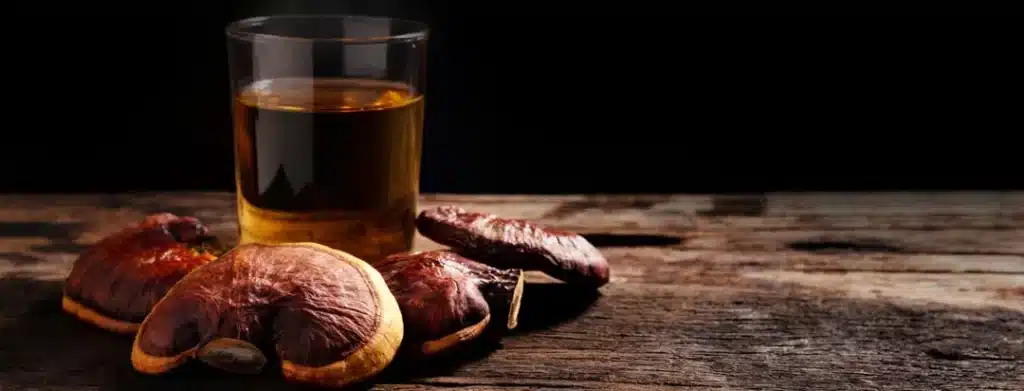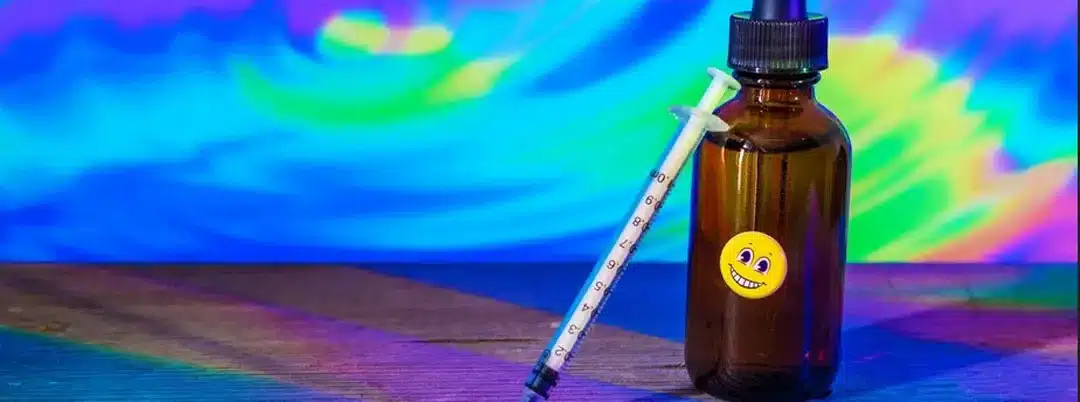Over the past three years, the use of “magic” mushrooms or shrooms by young adults has nearly doubled. While shrooms are still considered illegal substances in most states, they have been legalized or decriminalized in other states.
In addition, there has been more talk about shrooms in recent years. This is largely due to many exploring the potential mental health benefits of shrooms. Yet, many people taking shrooms aren’t doing it for the therapeutic benefits.
For a long time now, people have been dangerously mixing substances like Xanax and alcohol, and now this is increasingly common with alcohol and shrooms. But can you mix shrooms and alcohol safely?
We’ll explore the impact of these substances on your body and answer that. Keep reading.
What Are Shrooms?
Shrooms, short for psilocybin mushrooms, are a type of naturally occurring fungi that have been used for centuries in various cultures around the world. They contain a psychoactive compound called psilocybin, which is responsible for their mind-altering effects.
When consumed, shrooms can induce vivid hallucinations and alter one’s perception of reality. They have long been revered as sacred substances with the potential to unlock profound spiritual experiences and insights into the self. However, it’s important to note that they are classified as illegal drugs in many countries due to their psychedelic properties.
How Do Shrooms Impact the Body?
Psilocybin mushrooms work by interacting with serotonin receptors in the brain. They specifically target areas associated with mood regulation and perception.
The compound is converted into psilocin once ingested (the active form). Ultimately, leading to changes in neurotransmitter activity and communication within neural networks. This can have a profound impact on the body and mind.
It’s worth noting that individual reactions to shrooms can vary widely depending on factors such as:
- Dosage amount
- Personal tolerance level
- Environment
- Mindset prior to use
- Any potential interactions with medications or other substances
Interaction With Serotonin Receptors
The interaction with serotonin receptors results in altered perception, mood changes, and possible hallucinations. Users may experience an enhanced sense of colors and patterns or even see objects morphing before their eyes, as well as outright hallucinations caused by higher doses of this potent psychedelic.
Cognition
Shrooms also influence cognition and thinking processes. Some users report deep introspection and increased creativity while under the influence of these psychedelic fungi.
Physical Effects
The physical effects of shrooms can include the following:
- Dilation of pupils
- Increased heart rate
- Nausea
- Dizziness
- Muscle weakness or tremors
These effects typically begin within 20 to 60 minutes after ingestion and can last for several hours.
How Does Alcohol Impact the Body?

Alcohol is a widely consumed substance that has various effects on the body. When ingested, alcohol quickly enters the bloodstream and affects multiple organs and systems.
Central Nervous System Impact
Alcohol acts as a depressant, slowing down brain activity. This can lead to impaired judgment, decreased coordination, and difficulty in making decisions. Additionally, alcohol affects neurotransmitters like dopamine and serotonin, which play a role in regulating mood and emotions.
Impact on the Liver
The liver is responsible for metabolizing alcohol into less harmful substances. However, when someone drinks excessively or chronically abuses alcohol, it puts an immense strain on the liver and can result in conditions such as alcoholic hepatitis or even cirrhosis.
GI Impact
Consuming large amounts of alcohol can irritate the gastrointestinal tract. It can cause inflammation of the stomach lining (gastritis) or even damage to the esophagus from frequent vomiting (alcoholic esophagitis). Long-term heavy drinking may also increase the risk of developing ulcers or pancreatitis.
Why Do People Mix Alcohol and Shrooms?
The combination of alcohol and shrooms may seem like an unusual mix, but it’s not uncommon for people to experiment with these substances together. There are several reasons why individuals choose to combine them, although the risks associated with this combination should be carefully considered.
Seeking an Enhanced Effect
Some believe that consuming alcohol before or during a mushroom trip can intensify the psychedelic experience. They may hope to amplify the visual distortions, euphoria, and altered perception that shrooms can induce.
Experience
Another motivation for mixing these substances is the potential for a more relaxed or social experience. Alcohol is known to lower inhibitions and increase sociability, which some individuals find helpful when navigating the intense introspection that psychedelics often bring. By combining alcohol with shrooms, they hope to strike a balance between introspection and external interaction.
Decrease Anxiety Around Taking Shrooms
Some individuals use alcohol as a way to mitigate potential anxiety or discomfort caused by taking mushrooms. The relaxing effects of alcohol might help take the edge off any feelings of unease or apprehension that can arise during a psychedelic journey.
Curiosity and Peer Influence
Many individuals are naturally drawn to exploring altered states of consciousness. This can lead to experimenting with different combinations of drugs as part of their personal exploration or recreational activities.
Peer influence can also contribute to mixing shrooms and alcohol. If someone sees others around them enjoying both substances simultaneously without apparent negative consequences, they may be tempted to try it themselves.
What are the Risks of Mixing Shrooms and Alcohol?

It is crucial to understand that mixing shrooms and alcohol can lead to several risks and considerations. First and foremost, both substances affect the body in different ways, so combining them can intensify their individual effects.
Negative Psychological Reactions
One of the primary concerns when mixing shrooms and alcohol is an increased risk of a bad trip or negative psychological reactions. Shrooms are known for the following:
- Altering perception
- Inducing hallucinations
- Causing intense emotions
Alcohol, on the other hand, impairs judgment and lowers inhibitions. Combining these two substances can create an unpredictable state of mind that may result in anxiety, panic attacks, or even psychosis.
In addition, the combination of these substances may intensify emotional states such as anxiety or depression. This heightened emotional sensitivity could potentially trigger negative experiences during a trip.
Impact on Physical Health
Both shrooms and alcohol put a strain on various organs, such as the liver and kidneys. Mixing them together significantly increases this strain, potentially leading to organ damage or failure.
Another major concern is that both shrooms and alcohol can cause nausea and vomiting. When combined, these effects may become more severe and could lead to dehydration or choking hazards if not properly managed.
Cognitive and Coordination Impairment
Both shrooms and alcohol can impair coordination and cognitive function individually. When combined, these effects can become more pronounced and increase the risk of accidents or injuries.
Additionally, mixing shrooms and alcohol can increase feelings of confusion or disorientation. This impaired cognitive function makes making sound judgments or reacting appropriately in certain situations difficult.
Can You Mix Shrooms and Alcohol?
After exploring the effects of both shrooms and alcohol on the body, it’s clear that mixing the two substances can be risky. While there may be some allure to combining them for a heightened experience or to decrease anxiety around taking shrooms, it’s important to consider the potential dangers.
The interaction between shrooms and alcohol can intensify the effects of each substance, leading to unpredictable outcomes. Both substances impact serotonin receptors in the brain and have an impact on cognition, physical health, and liver function. Mixing them can put additional stress on these systems.
Treatment for Co-Occurring Hallucinogen and Alcohol Addiction

If you or someone you know is struggling with a co-occurring alcohol and hallucinogen addiction, it is crucial to seek professional help. Detox and treatment options are available to address both substance use disorders simultaneously, ensuring comprehensive care for individuals dealing with these complex issues.
Ultimately, the most effective approach to addiction treatment will vary from person to person. Working closely with healthcare professionals specializing in addiction treatment is essential to determine the best course of action for your unique needs. With the right treatment plan in place, it is possible to achieve long-term recovery from addiction.
Individualized Treatment Plans
Effective treatment typically begins with a thorough assessment of your unique needs and circumstances. A team of healthcare professionals will develop an individualized treatment plan. This could include:
- Detoxification
- Counseling
- Therapy sessions
- Support groups
- Medication management
Detoxification
Detoxification may be necessary to safely remove substances from the body before starting the recovery process. Medical supervision during this phase can help manage withdrawal symptoms and ensure physical stability.
Therapy
Therapy plays a critical role in addressing underlying issues contributing to addiction while teaching coping skills for relapse prevention. Common approaches used in treating co-occurring addictions include the following:
- Cognitive-behavioral therapy (CBT)
- Motivational interviewing (MI)
- Dialectical behavior therapy (DBT)
Holistic Treatment Options

Holistic treatment options can also play a significant role in helping individuals maintain long-term recovery success. These options may include:
- Mindfulness practices
- Expressive therapies
- Nutritional counseling
- Acupuncture
Support Groups and Aftercare
Participation in support groups like Alcoholics Anonymous (AA) or Narcotics Anonymous (NA) can provide ongoing support after formal treatment ends. Aftercare programs also offer continued guidance and resources to promote long-term recovery success.
Start Your Journey to Recovery
So, can you mix shrooms and alcohol? Mixing shrooms and alcohol can have unpredictable and potentially dangerous effects on the body. While some people may be drawn to combining these substances for a heightened experience, it’s important to understand the risks involved.
At Purpose Healing Center, we believe in holistic treatment. We’ll work with you to create an individualized plan for recovery. Are you ready for a fresh start?
Contact us today to begin your journey to recovery.



